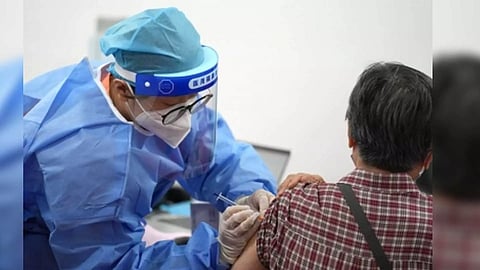

NEW YORK: People who experience more side effects like chills, tiredness, feeling unwell, and headache post Covid-19 vaccination may be having an enhanced antibody production in their bodies, according to a preprint study, that is not yet peer-reviewed.
Protection against SARS-CoV-2, the virus causing Covid-19, wanes over time, and booster uptake has been low.
The new study, by researchers from University of California - San Francisco, US, showed that people who had those side effects after the second dose of a Covid vaccine had more antibodies against the coronavirus at one month and six months after the shot, compared with those who did not have symptoms.
Increases in skin temperature and heart rate also signalled higher antibody levels, the study showed.
The study explored the link between post-vaccination symptoms, biometric changes, and neutralising antibodies (nAB) after mRNA vaccination.
The team collected data from 363 adults who received two doses of either Pfizer-BioNTech or Moderna Covid.
“We found that certain symptoms (chills, tiredness, feeling unwell, and headache) after the second dose were associated with increases in nAB at one and six months post-vaccination, to roughly 140-160 per cent the level of individuals without each symptom,” said Ethan G. Dutcher, from the UCSF’s Department of Psychiatry and Behavioral Sciences, in the paper.
“Each additional symptom predicted a 1.1-fold nAB increase. Greater changes in skin temperature and heart rate after the second dose predicted higher nAB levels. Skin temperature had a stronger predictive relationship for six-month than one-month nAB levels,” Dutcher added.
However, this doesn’t mean that people without symptoms don’t muster a strong immune response, experts have said, noting that the relative increase in antibody levels among those who experienced side effects was small.
“Lack of side effects should not be taken as a sign that the vaccine’s not working,” Alessandro Sette, co-director of the La Jolla Institute of Immunology’s Center for Vaccine Innovation, who was not involved in the work, was quoted as saying to the New York Times.
An earlier study found that 98 per cent of people who felt no ill effects still produced copious amounts of antibodies, compared with 99 percent of those who had localised symptoms or worse, Sette said.
But, the researchers said, the new findings “suggest that public health messaging could seek to reframe systemic symptoms after vaccination as desirable”.